Want to increase your lifespan? Let’s have a look at the research, from supplements to slow aging to food choices for offsetting aging and lifestyle choices to slow aging. Oh and the biology of aging. Because we need to try to understand the science before we can decide on actionable protocols!
I think you’ll all agree that aging is universal, intrinsic, progressive, and deleterious to the health of an individual.
Doesn’t that make aging sound like a disease? Can we take a pill to cure aging?
Scientists couldn’t agree on what aging was until they had a symposium in 2013 and hashed it out. Now scientists and researchers are more in sync about the biology of aging.
So the biology of aging isn’t only about free radical damage or telomere shortening. (Click on the link for a quick overview on telomeres and DNA replication and how it relates to aging!)
The biology of aging is more complicated than scientists originally thought.
Research in this century focuses on those 9 hallmarks of aging.
Stem cell exhaustion? I’m exhausted just reading the list!
And now scientists propose adding three more hallmarks to make twelve :
Disabled macroautophagy, Chronic inflammation, and Dysbiosis.
WANT TO INCREASE YOUR LIFESPAN?
To increase our lifespans, we can possibly make changes via epigenetics!
Epigenetics is a rapidly growing area of science that focuses on the processes that help direct when individual genes are turned on or off.
The CDC definition: Epigenetics is the study of how your behaviors and environment can cause changes that affect the way your genes work.
Unlike genetic changes, epigenetic changes are reversible and do not change your DNA sequence, but they can change how your body reads a DNA sequence.
Now you’ll say, my family has a history of heart disease. I can’t do anything about my DNA.
Okay, that’s true. Your DNA is written. ATGC!
Those are your genetics. Science wants to increase your lifespan in spite of genetics.

THINK OF INCREASING YOUR LIFESPAN AS NATURE V NURTURE
LIFESTYLE CHOICES TO SLOW AGING
SUPPLEMENTS TO SLOW AGING
FOOD CHOICES FOR OFFSETTING AGING
THESE CHANGES WORK ON THE CELLULAR LEVEL
Behavioral interventions, nutritional interventions, supplemental interventions.
LIFESTYLE CHOICES TO SLOW AGING
Why yes, Louie. This does involve treats. Lots and lots of treats. And potato chips!
Technically, insulin resistance means that cells have stopped listening to insulin’s signals.
Imagine a cell as a balloon being blown up with air. Eventually, the balloon expands to the point where it gets more difficult to force more air inside. You have to blow harder and harder.
The air around the balloon (cell) is glucose!
Your pancreas pumps out more insulin to try to remove the excess glucose from the bloodstream and cram it into the cells. (air into the balloons)

Eventually you reach a limit where no more air (glucose) can be added to the balloon. (cells)
On a blood test, you’ll have high glucose levels and high insulin levels. The balloon has stopped letting air inside. The pancreas becomes fatigued from trying to help.
THINK OF SNACKING ANOTHER WAY
Your body is busy all the time sopping up the snacks so it never gets to take a break
WANT TO INCREASE YOUR LIFESPAN?
TAKE A BREAK FROM EATING sounds better than fasting
After dinner is a perfect time to take a break from eating. But that popcorn does call to me. Louie’s favorite snack? Read this post.
Kidding aside:
Intermittent and periodic fasting are emerging as safe strategies to affect longevity & health span by acting on cellular aging & disease risk factors, while causing no or minor side effects.
Their effect on cellular aging & the molecular mechanisms involved are only beginning to be unraveled.
IF, PF & longevityBIOLOGY OF AGING AS IT RELATES TO CALORIE RESTRICTION
AUTOPHAGY occurs constantly in our bodies
I know, not the best news. I like to eat too.
While autophagy, decreasing inflammation, decreasing mTOR activity, & increasing sirtuins are associated with several potential health benefits, it’s important to note that fasting or cutting calories may not be suitable for everyone.
If you’re intrigued by the idea of anti-aging via fasting, here’s an article from Johns Hopkins about intermittent fasting.
Intermittent fasting is a powerful tool and qualifies under of lifestyle choices to slow aging.
I went down an intermittent fasting rabbit hole while writing this post. (One reason it took me so long to finish!) I had a lot more info on the topic that I deleted in the interest of staying on track. And I did take a break and eat a snack.

Feel free to email if you want to chat more about it.
Let’s get back to other lifestyle choices to slow aging.
No this does not involve matching hats although I do like it as a lifestyle choice.
If you want to increase your lifespan, the data about exercise is not ambiguous.
A lot of convincing studies tout the benefits of exercise as a lifestyle choice to slow aging.
Let’s move on to a more controversial choice to increase your lifespan.
Supplements.

MY DISCLAIMER SECTION
It is impossible to offer guidance on who should take what supplement, the proper dose, when to take it, and when to stop.
I can share my findings & summarize the biochemistry, so you can make your own decision.
I can also share three questions to ask yourself before you purchase any supplement.
The more clearly you can define your objective, the more clearly you can assess if this is the right tool for accomplishing that objective.
a> A biomarker (short for biological marker) is an objective measure that captures what is happening in a cell or an organism at a given moment.
b> Example of a biomarker is your fasting blood glucose, to check the health of your pancreas.
c> If there is no biomarker to monitor as a measure of effectiveness, it doesn’t mean you shouldn’t take the supplement or medication; it just means you may need to be more intentional about monitoring results in other ways.
a>Everyone has a different tolerance for risk.
b>Some questions to consider when weighing risk vs. reward:
- Is the mechanism of action well understood?
- How many patient-years of use exist
- What are the short- and long-term risks of taking the medication?
- What are the risks of not taking the medication?
SUPPLEMENTS TO SLOW AGING
THE BIOLOGY OF AGING 101
I’ve only skimmed the surface on the biology of aging. There are more molecules and processes involved. (For a primer on telomere shortening & aging, read this post)
THE BIOLOGY OF AGING : mTOR & SIRTUINS
The search for an activator of sirtuins is a robust topic of research.
Sirtuins play key role during cell response to a variety of stresses, such as oxidative or genotoxic stress and are crucial for cell metabolism.
Sirtuins & AgingWe want mTOR inhibitors & science has found one!
WANT TO INCREASE YOUR LIFESPAN?
Want to increase your lifespan? Increase sirtuin levels and decrease mTOR pathways!
Laboratory data points to calorie restriction as an effective way to extend lifespan without genetic or pharmacologic intervention. But the data does not have exact instructions for us yet.
However, we can increase sirtuins with exercise. Exercise is an irrefutable lifestyle choice to slow aging.
I hope that y’all can try to add walking into your daily routines. But fasting is not feasible for everyone. Enter another option. Supplements to slow aging.
TURMERIC & ITS ACTIVE INGREDIENT CURCUMIN

Here’s another article: the promise of slowing down aging may come from curcumin.
The best curcumin supplements contain piperine, and this makes them substantially more effective because the curcumin is absorbed more readily.
Piperine is in black pepper! It’s considered a type of antioxidant in its own right! It helps to lower the risk of chronic illnesses like atherosclerosis, cardiovascular disease, & neurological conditions. Food choices for offsetting aging? Pepper! Start sprinkling pepper in your food as a supplement to slow aging!
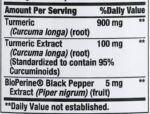
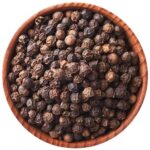
FOOD CHOICES FOR OFFSETTING AGING : RECOMMENDED AMOUNTS OF TURMERIC AS A SUPPLEMENT TO SLOW AGING
The World Health Organization (WHO) has determined 1.4 mg per pound (0–3 mg per kilogram) of body weight an acceptable daily intake. (Yes, math is involved!)
But Cleveland Clinic dietician states,”It’s safe to take up to 8 grams per day, but my recommendation would be somewhere on the lighter side: 500 to 1,000 milligrams a day for the general population.”
Also note : Turmeric supplements are unsafe if you are pregnant, breastfeeding, or have certain conditions. Supplements can also interact with blood thinners and diabetes medications.
Again, if you have any doubts, check w/ your health care provider!
If you’d like to try some turmeric plus pepper, click on the : Affiliate turmeric link
You’ll be getting ahead of aging with a safe supplement. And I may someday reach my $10 minimum earnings on Amazon and they’ll venmo me. That day has not arrived.
SUPPLEMENTS TO SLOW AGING con't : nicotinamide mononucleotide (NMN) & nicotinamide riboside (NR) aka Niagin
First we need to take a quick peek at the biology of aging as it relates to the compound NAD+.
Or skip the slides and get to the punchline.
Nicotinamide riboside (NR) or Niagen is a member of the vitamin B3 family, which also includes niacin and niacinamide. It’s found in fruits, vegetables, meat, and milk.
Don’t mistake Niagen for Niacin.
This study showed that NMN supplementation improved the aerobic capacity of runners, likely due to enhanced O2 utilization of the skeletal muscle.
Does an increase in NAD+ increase lifespan?
Studies have shown the answer is yes.
I’m fascinated by the logic behind the science.
Should you run out and buy NMN or NR supplements?
Here’s another article about NAD+ and a web page dedicated to NAD if you care to do more reading.
Consider lifestyle choices to slow aging, such as a healthy diet & moderate exercise. These options are only good for your mental health, but can also boost your NAD+ levels!
Let’s tiptoe out of the experimental woods.
SUPPLEMENTS TO SLOW AGING : RESVERATROL
When I did a search for studies of resveratrol supplements, 10,027 articles popped up.
I think it’s safe to state that polyphenols– organic compounds found abundantly in plants– are an emerging field of interest as foods choices for offsetting aging.
But should we be taking resveratrol supplements to slow aging? And why do we need polyphenols in our diet, anyway?
Studies show that polyphenols are powerful antioxidants.
Polyphenols also:
Which increases insulin resistance!

Here is a link to a database that will give you the polyphenol content of many foods, spices & beverages. (Resveratrol is a polyphenol.)
And here is a free-access, 2020 themed issue from the British Pharmacological Society ‘The Pharmacology of Nutraceuticals.’
I found study after study showing improvements with resveratrol supplements, but the dosage is still a big question in the scientific community.
In addition, there are a number considerations that affect the rate of active & passive individual absorption in each person’s gastrointestinal tract.
Louie only likes the peanuts.
While it is clear that adding polyphenols to your diet, to include foods that contain resveratrol is an excellent idea if you want to increase your lifespan & quality of life, I leave the decision of adding a resveratrol supplement up to you and your nutritionist.
WANT TO INCREASE YOUR LIFESPAN?
I KNOW OF AN FDA APPROVED SUPPLEMENT TO SLOW AGING
VITAMIN D
FOODS CHOICES FOR OFFSETTING AGING
Although the FDA recommends taking a vitamin D supplement, & strong evidence points to the positives for adding turmeric as a supplement to slow aging, in general, supplements to slow aging can’t completely replace food choices for offsetting aging.
And of course you should consult w a professional.
I feel safe advising that you seek out polyphenol-rich foods!
WHICH BRINGS ME BACK TO SUPPLEMENTS TO SLOW AGING
Although rapamycin is not yet approved by the Food and Drug Administration as a life-extension drug, it can still be prescribed “off-label” for life-extension therapy.
Dosage for one thing. The dose for the anti-aging effect isn’t clear because comprehensive studies in humans have not been completed. But people are taking it, and you can find physicians to discuss the possibility if you so choose.
WANT TO INCREASE YOUR LIFESPAN?

A survey based trial of 333 people conducted over 3 years yields positive results.
Obviously this study can't state that lifespan was increased but healthspan was.
May 2023 human study of rapamycinThere are several independent, large long term studies in progress to evaluate the effects of rapamycin on aging, using companion dogs. The results will be available in 2026.
Here’s another clinic trial organizing to study supplements to slow aging at Tufts. You could enroll your dog here.
WANT TO INCREASE YOUR LIFESPAN?
The information in this post—and my website— does not constitute either directly or indirectly any medical advice. The provided information is intended to inform and is in no way a substitute for the direct relationship between a patient and a health professional.
I have several disclaimers stuffed in this post because, while lifestyle changes to slow aging are more direct, with concrete biomarkers, supplements to slow aging is a maze!
My initial search for rapamycin produced 153, 192 articles on a medical website.

I had to back off and read. This post took me six months. Sure, other things came up but the point is that increasing your lifespan a hefty topic.
I suspect in the next five-ten years, the FDA will approve supplements to slow aging.
Which of these options appeal to you most? Or which options don’t?
I’d love to hear your thoughts!



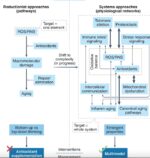
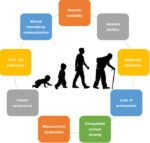








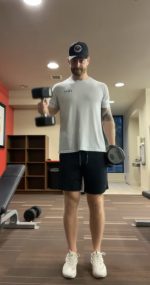

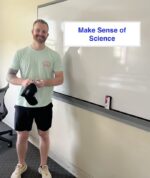



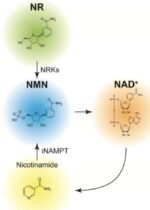





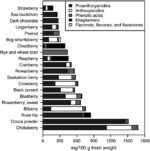

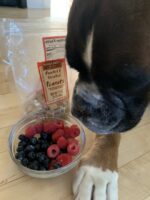

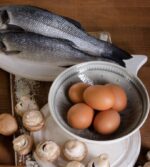



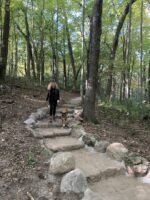
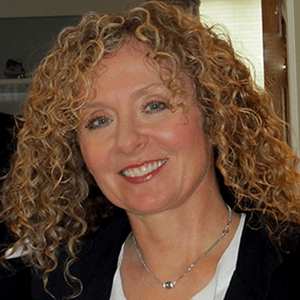
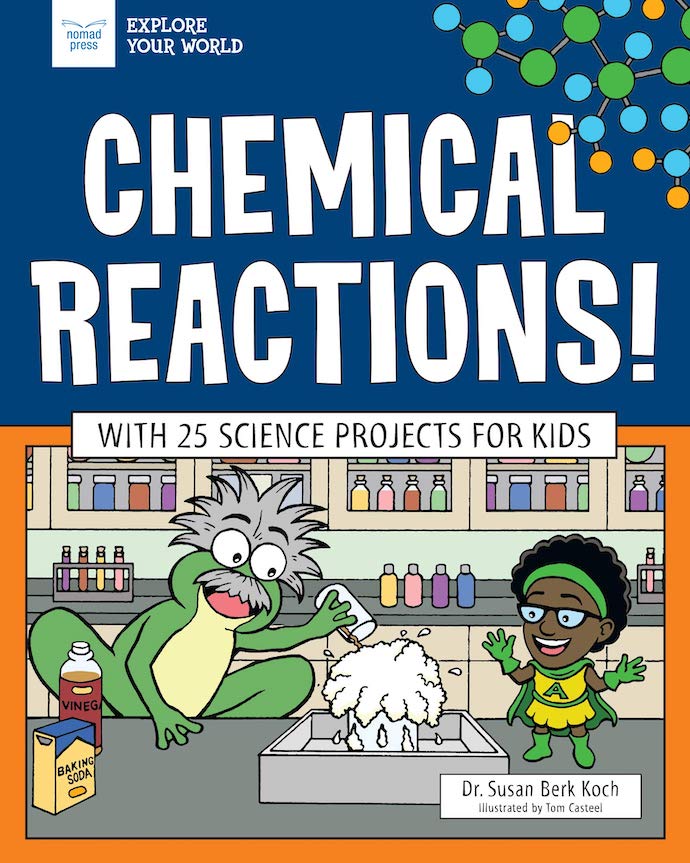


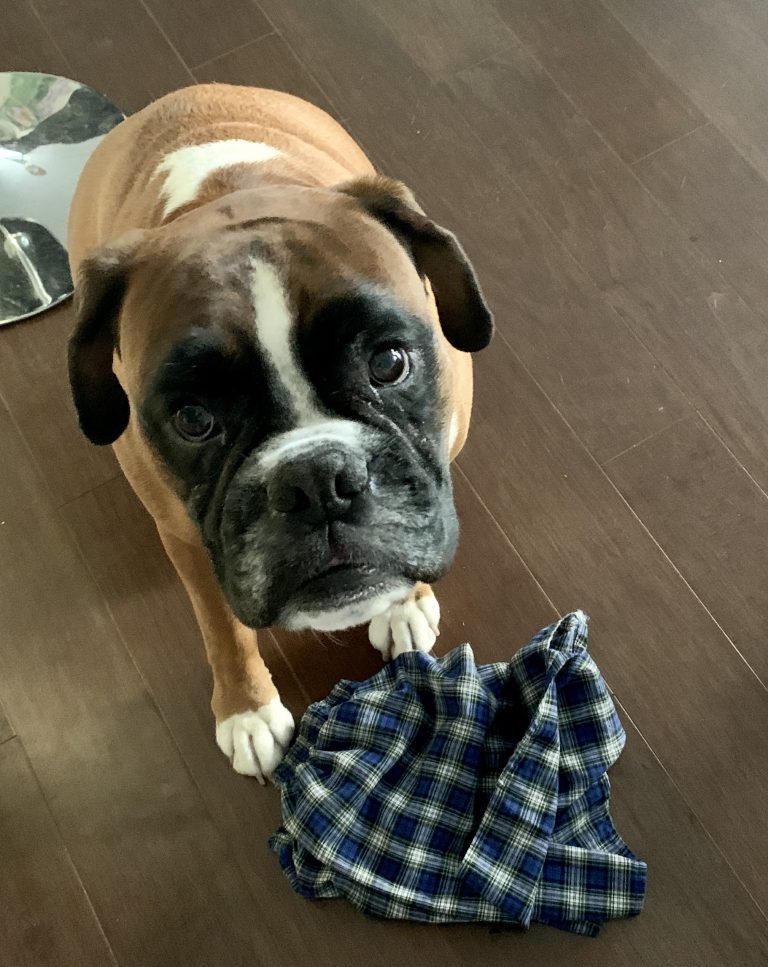
Wow, this post has so much info, thank you. I’m going to bookmark it so I can refer to it again.
I’m happy that you found the information useful. Thanks for stopping by!
Oh this is all really interesting, thanks so much for sharing! x
I’m happy that you liked this post.Thanks for stopping by!
Love this post. I can’t imagine how much time it takes to research these new–or not new– supplements. I think I’ll stick with watching my diet and trying to exercise more. Thanks so much for the information.
I’m trying to exercise more too! Lifestyle changes are a challenge, without question. Thanks!
A really interesting read for wanting to increase your lifespan! x Lucy
Thanks so much!
So did you enroll Louie in that study? JK! I’m going to pick up some vitamin D. Great post.
I did not! But we have him do a few wind sprints every day to work his cardio! Thanks so much.
Glad to see that you’re writing again. It’s amazing how you can assimilate all this information into something that most people can understand. Can’t wait for the next one. Great to see pictures of Louie again. Keep up the good work. It is much appreciated.
That’s kind of you to say, Mike. You restated my objective! Thank you. I appreciate you stopping by!
Sue, this is so impressive. The research you did! Halfway through reading, I took a break and played two sets of tennis. (For my health you know.) I’ve found the secret to exercising is to find something you love to do. Three-fourths of the way through reading, this, I hiked with my family through Devil’s Lake. Another fun activity.
Thank you so much for sharing your findings. You rock!
‘The secret to exercise is finding something you love to do!’ Wise words. Tennis and a hike today? Fantastic, Amy. Thank you for the lovely compliments. I shouldn’t want the extrinsic reinforcement, but they make the hard work well worth it!
This is interesting, I know it is possible and have seen some real-life examples who did it. I learned new things from your post. Thank you for sharing!
I’m glad you picked up a few facts! Thanks for stopping by!
I’ve watched a few documentaries on epigenetic but I always forget the details about how it all works, so it’s nice to have a refresher. The information on insulin was especially interesting, and you’ve done a better job of explaining things than any of the endocrinologists I’ve had appointments with
I’m sad to hear that you need to see endocrinologists, but that’s high praise. I appreciate it. Thanks for the thoughtful comment.
This is very interesting and there’s so much to this topic to consider!
Thanks, Jenny!
I always learn so much from your posts! I’d never even heard of the word Epigenetics this post. Thanks for all of this information!
That’s so gratifying! Thank you, and thanks for stopping by!
Firstly, I can quite see why this post took you 6 months to write, Sue, it’s incredibly in-depth and comprehensive! We already take Vitamin D supplements, but I’ll certainly look into Turmeric supplements as well now, thank you.
I’m grateful that you noticed the depth of material! Good for you to investigate turmeric. Let me know what you decide! Thanks, Lisa!
Fantastic post as always Susan! I love the amount of research that’s gone into this post. I’ve started doing a lot more exercise this year – and I’ve really benefited from it. Thank you for sharing x
Great news about you increasing your exercise, and that you already feel the benefits! I’m happy that you found my post fantastic! Thanks.
Being in my 40s this was quite an interesting reading!
I’m gratified that you found my post interesting! Thanks so much for stopping by.
Wow, what a post! I’m always looking for ways to improve my life span. I’m focusing on eating well an exercising!
Two fantastic methods to keep yourself young! Fantastic, Corinne. Thanks so much.
Sue you have a talent for making a serious subject entertaining! So much info here, I like how you have made the post interactive. I’m working on increasing my exercise and already eat berries and use turmeric (in my cooking and a supplement). Your disclaimers are helpful, too – it’s always important to consult with your care provider. Unfortunately, they don’t often have much education when it comes to nutrition and alternative health practices like the use of supplements. I subscribed to ConsumerLab (dot) com for their recommendations on supplements as they independently test supplements for heavy metals and to verify the product has what it says it has in it. Plus they share relevant research.
I did not want to broach the topic of health care providers and whether or not they’ve kept up to date with research regarding nutrition & supplements. There are specialists in this growing field for anyone who wants to reach out. (Email me on my contact page if you’d like some ideas) Thanks for mentioning consumer lab. They do a great job. For the dozen turmeric supplements they test, there are five dozen more out there! They aren’t looking at compounds such as rapamycin but it is a start!
Fantastic that you’re already taking turmeric and eating a lot of berries! I hope to see you on the hiking trail!
This is such an informative post with so many interesting points. Thank you for sharing this post.
Lauren – bournemouthgirl
I’m glad that you found my post informative. Thanks so much!
Great post! Thanks for all of your research. I’m making Chana Dal with lots of turmeric as I read this, but I think I will try some turmeric supplements also. 🙂
I love Dal! Maybe I’ll make some tonight too. I’m happy to hear that you’re considering turmeric and glad that you liked my post.Thanks for stopping by!
Your writing has a way of making even the most complex topics accessible and engaging. I’m constantly impressed by your ability to distill complicated concepts into easy-to-understand language.
Thanks so much!